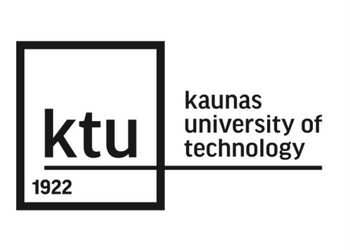Many business school hopefuls from various fields question if they can earn an MBA and wonder if they need a business background for an MBA. The quick answer is yes, and it is more common than most people believe. There is no specific background required for most MBA programmes or specific undergraduate degrees. Some schools suggest a few years of professional work experience, but this doesn’t have to be in business necessarily. There are even MBA programmes for students with minimum work experience. MBA graduates come from various disciplines hoping to use the degree to advance their careers or form a company. Regardless of your field, MBA graduates benefit from having a better understanding of how organisations operate. Students look towards MBA programmes to become more specialised in areas such as leadership, organisational change, human resources, operations, etc. Now, let EDUopinions explain how you don’t necessarily need a business background for an MBA.
EDUopinions is a unique platform where you can read real, verified student reviews about universities from all over the world as well as get free information about them.
What is an MBA?
An MBA stands for Master’s of Business Administration. It is a postgraduate degree awarded to students who have demonstrated mastery of business on a graduate level. This degree is intended to assist students with learning practical business skills and leadership training. MBA programmes are considered to be one of the most versatile graduate degrees. Often students will have a final project that provides opportunities to research business issues and determine solutions. These programmes often provide students with hands-on consulting experience during their program. Students of MBA programmes also study the theory and application of business and management principles. The degree prepares an individual for practical use of business skills assisting graduates in the process of moving into management, starting a company and even changing careers.
Adapting to the changing needs of the business world
Business schools understand that enrolling non-business degree students provides diverse perspectives in a course. Diversity in students can be valuable to an MBA cohort as students learn a lot from the experiences and background of those in their classes as they work together. Also, since an MBA programme focuses on leadership and management, having a diverse cohort can represent certain business situations students could face. Want to boost your career in Business?
Admission teams recognise this as an added benefit, and it is a selling point for programmes. Additionally, companies that specialise in areas such as engineering, technology, and medical often hire graduates in these fields with an MBA because they appreciate the business knowledge they acquire from their programmes.
Benefits of entering an MBA without a business background
Not having a business degree will not prevent you from earning an MBA. Obtaining an MBA allows a graduate to combine their experience with business knowledge. You will find that having an understanding of how the core areas of business functions such as finance, marketing, operations, etc. can only help you effectively lead others in your profession.
You will see many programmes offer dual degrees because they know how helpful an MBA can be. For example, you may see schools offer a dual graduate degree in law/business, medical/business, and technology/business to name a few.
How to position yourself to be successful in an MBA programme

If you haven’t taken business courses or have a business background, you might find it helpful to acquire a general foundation in business. Without this, some students may struggle to keep up with the content. Some schools offer classes to help potential students with preparing for the program. Additionally, you should also determine the area of business in which you would like to obtain your speciality. For example, it could be human resources, finance, operations, marketing, etc. Also, conducting a self-evaluation before enrolling into a business program could be helpful.
Determine the following:
- Where would you like to be after the programme?
- Are there areas that you are passionate to learn?
- What business problems do you want to resolve?
You will also find it helpful to complete a needs assessment for your research and determine what is important to you in an MBA programme. For example, do you need a fully online MBA programme or are MBA rankings important for your final consideration?
Final thoughts
Business school hopefuls have every opportunity to earn an MBA regardless of their background. Understanding your goals and needs will assist as you begin searching for schools. The goal is to select a program that will give you opportunities to reach your purpose. There are many types of MBA programs for students today. For example, there are MBA programmes offered entirely online, nights, and weekends. There are even MBA programmes that don’t require a GMAT or GRE assessment. After conducting a self-evaluation, needs assessment and researching programmes, you are sure to find the right school to suit your preferences and help you reach your goals. So, no, you don’t necessarily need a business background for an MBA.
Recent Posts

Studying abroad for a semester or a full year can be an incredibly enriching experience. You'll get to experience a new culture, meet new people, and ...

If you're thinking of studying a technical subject like engineering at university, it's crucial that you choose a university that has a rigorous ...

Although it's possible to sail through university without giving a thought to what you're going to do afterwards - concentrating only on enjoying ...

